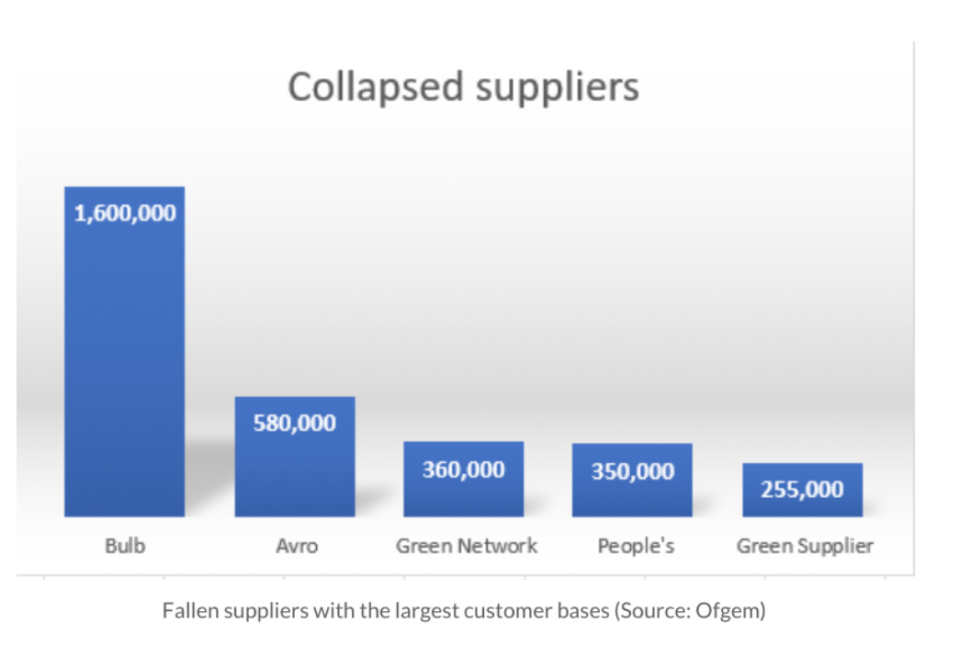Ofgem chief urges Brits to reduce their energy usage this winter

Households should be encouraged to reduce their energy usage this winter to help drive down record bills, argued Ofgem boss Jonathan Brearley.
The chief executive of the UK’s energy watchdog believed that everyone should be “thinking about how to reduce their energy use where possible.”
He said: “This is not only the most direct way to reduce our bills. It directly helps with security of supply contributes to decarbonisation, and saves money for the public finances.
Brearley pointed to multiple methods for reducing usage painlessly without driving up costs for consumers such as lowering boiler flow temperatures to 60 degrees celsius, which charity group Nesta has calculated can shave £150 per year off gas bills.
He also favoured small behavioural changes such as turning lights off when leaving the room and ensuring devices aren’t left on standby.
Ofgem is now working with the energy sector and industry groups to help consumers receive the most useful information to cut down their energy bills.

The energy boss explained: “We want to drive a culture change in the energy sector to ensure providers are fulfilling their obligation, achieving good customer outcomes and are financially, and operationally robust. Thinking back to the challenges we had last year.”
Brearley was speaking at trade association Energy UK’s annual conference, amid a backdrop of record energy bills and fears over supply shortages this winter.
He said he welcomed the Government’s support packages for households and business, with new Prime Minister Liz Truss intervening in the market to shield customers from ultra-high energy bills.
It has unveiled historic support packages estimated at a combined cost of over £100bn – which is even more expensive than the Covid-19 furlough scheme – that effectively cap wholesale costs with borrowing funding the difference to compensate suppliers.
Nevertheless, the Energy Price Guarantee still means a typical household will be paying around double what they were paying a year ago.
It is also not a cap that completely constrains prices, in the sense the amount people pay will still depend on the amount you use.
Government stops short of customer advice
The Government recently rolled out a £1.5bn energy efficiency scheme to boost protection for vulnerable, low-income households, however the UK still has some of the least efficient housing in Europe.
It has also stopped short of offering direct advice to households.
However, proposals for a £15m public information campaign providing tips such as managing boilers were scrapped last month amid concerns over costs and because Downing Street favoured industry campaign from Ofgem and National Grid.
Alongside Ofgem’s new campaign, National Grid’s electricity system operator is set to offer compensation and discounts to energy users to reduced demand during peak hours.
Nevertheless, leading energy figures remain unconvinced.
Earlier in conference Energy UK chief executive criticised the Government’s decision not to initiate its own campaign as “baffling.” with credible information for customers to meaningfully cut energy bills highly valuable this winter.
Brearley played down the prospect of a supply crunch this winter, amid media reports focusing on the National Grid’s worst case scenario of three-hour blackouts rolled out regionally over the winter.
He argued the “overall position remains favourable” and that the National Grid expects to meet demand in nearly all scenarios with “reliable domestic gas production and imports.”

However, he warned that people should be “under no illusion that winter will be a difficult environment’ and that war in Ukraine has “fundamentally changed the energy situation.”
Brearley also warned suppliers Ofgem would continue to take “robust action” against suppliers that fail to meet their obligations to customers.
Ofgem has been urgently pushing to clean up the energy sector following mass market carnage which has seen nearly 30 suppliers collapse since last summer, directly affecting over four million customers.
It has already brought in fit and proper person rules, financial stress tests and moved the price cap to a quarterly model.
The watchdog slapped Utilita and Scottish Power with provisional orders last month, requiring them to meet requirements to customers following a “series of apparent failings.”
The next debate is likely to be over ringfencing customer credit balances, which has divided major players in the energy sector.